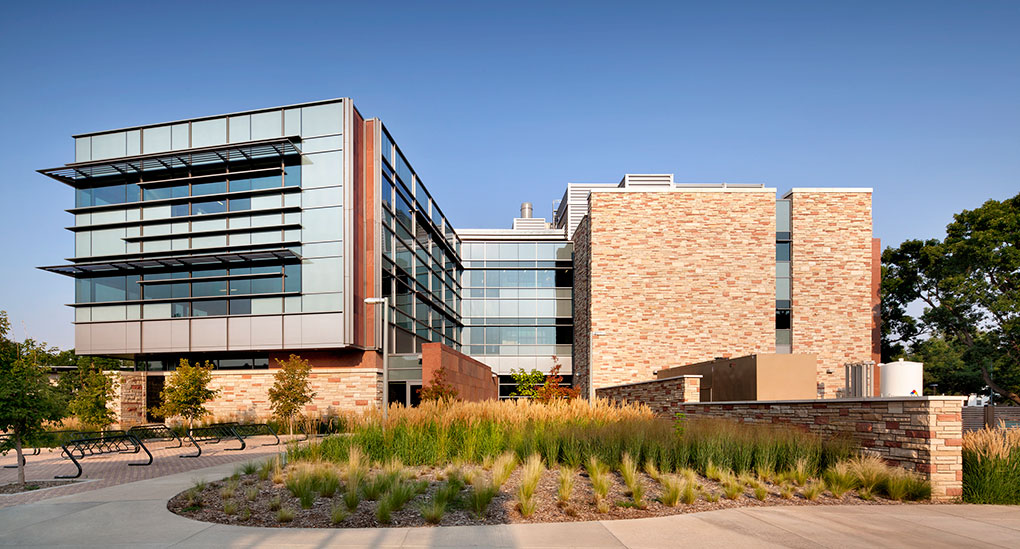Welcome
Modern transportation infrastructure and the safe and efficient movement of people and goods is a critical component of Colorado’s Front Range economy and the global economy. When transportation systems are well planned, designed, constructed and maintained, they provide business and social opportunities that result in better accessibility to markets, employment and new investments. And with the trend toward urbanization and the creation of mega-cities and mega-regions, it has never been clearer that vibrant and livable communities are shaped by their transport systems. To understand the performance of such a complex system is critical to advancing the state-of-the-art of transportation planning and engineering, and the quality of life in the communities in which we live and work.
The Center for Sustainable and Intelligent Transportation Systems (CSITS) aims at conducting multi-disciplinary research, education and outreach promoting the sustainability of transportation infrastructure, with a focus on safety and reliability, resiliency, autonomous and connected vehicles, connected transportation and smart infrastructure. CSITS brings together interdisciplinary research and thought leadership encompassing civil and environmental engineering, mechanical and system engineering, social sciences, public health, economics and business administration.
The Center for Sustainable and Intelligent Transportation Systems (CSITS) aims at conducting multi-disciplinary research, education and outreach promoting the sustainability of transportation infrastructure, with a focus on safety and reliability, resiliency, autonomous and connected vehicles, connected transportation and smart infrastructure. CSITS brings together interdisciplinary research and thought leadership encompassing civil and environmental engineering, mechanical and system engineering, social sciences, public health, economics and business administration.
|
Premier Research Institution
Colorado State University is recognized as one of the premier research institutions and ranks in the Top 10 percent of research universities nationwide for R&D, according to the National Science Foundation. As a Carnegie Research Extensive University, CSU plays a critical role in driving innovation from its laboratories to the marketplace. With government and private industry seeking solutions to today’s challenges, more are turning to CSU, well known for its core technical and R&D strengths, its ability to solve today’s complex problems across a broad range of industries, and its capabilities to provide independent, pragmatic, third-party assessments.
CSU offers state-of-the-art incubator facilities for early stage partners and several core research areas which are poised to impact the global marketplace. Additionally, CSU has created a Catalyst for Innovative Partnerships, a program under the direction of the Vice President for Research that supports interdisciplinary teams tackling societal and scientific challenges. |
Mountain-Plains Consortium
CSU is a member of the Mountain-Plains Consortium, a University Transportation Center sponsored by the U.S. Department of Transportation through its Research and Innovative Technology Administration. MPC’s vision is to advance "Transportation infrastructure and operations to support sustainable energy development and the safe movement of people and goods."
Interdisciplinary Research and Education Center
The Center for Sustainable and Intelligent Transportation Systems collaborates and aligns with the Center for Risk-based Community Resilience Planning, an interdisciplinary research center with ten universities – led by CSU – with funding provided by the National Institute of Standards and Technology (NIST); and a Hybrid-Electric Vehicle Engineering (HEVE) research area housed in the Department of Mechanical Engineering, that is studying autonomous vehicle safety benefits, GHG and emissions benefits of plug-in hybrid-electric vehicles, transportation systems, big data and workforce development.
Technology Transfer
CSU Ventures, established in 2006, is a matchmaker who brings the private sector and academia together for mutually beneficial collaboration. By identifying partners who share values and interests, we put the results of CSU’s academic research to use and ensure that new innovations impact people’s lives locally, nationally and globally. CSU Ventures accomplishes this by connecting industry partners to CSU researchers; linking investors and entrepreneurs with researchers who have startup potential; and by pairing researchers with industry partners and other resources to ensure their success. This results in new products, businesses and jobs that positively impact economic growth for Colorado and society as a whole.
|

